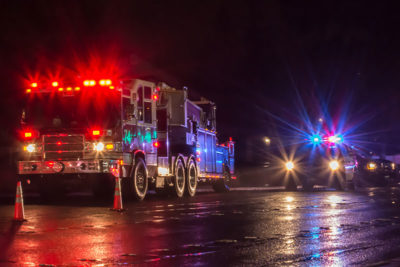 By: Carlos Farina, MS, MCAP, ICADC, CHT, NBCCH
By: Carlos Farina, MS, MCAP, ICADC, CHT, NBCCH
Deputy Sheriff (RET)
Military Veteran
Help For Our Heroes Program Founder and Director
It has been well documented that the most stressful career in the world is in the field of law enforcement, followed by other emergency personnel. Despite their high public profile, it is estimated that alcohol abuse affects one-quarter of this country’s first responders and drug abuse affects a similar amount. These men and women learn a very important rule in their career: “No matter what happens, you suck it up and move on.” Unfortunately, it’s not that easy.
Today, officers are experiencing high levels of stress and frustration with a weak criminal justice system, working in a very dangerous environment with an escalating violent society with more violent citizen confrontations, officer-involved shootings, witnessing horrific crime scenes, and often the loss of a fallen partner and much more.
All this keeps the officer in a high state of hypervigilance, forcing an emotional rollercoaster filled with stress, anxieties, numbness to express feelings and becoming detached and distant from family and friends. All these lead to other negative consequences in the officer’s life, resulting in acting out with inappropriate ways to decompress.
Unfortunately, law enforcement, corrections officers, and firefighters, as a whole, have a culture that encourages drinking alcohol in order to cope, be accepted, and create camaraderie among them. Officers often experience a great deal of pressure when attempting to get out of this destructive cycle when friends and other officers are encouraging the behaviors, allowing their secret to hide even deeper, creating more internal pain of a shattered and shameful life.
Law enforcement has some of the highest rates of substance abuse, divorce, depression, family dysfunction, and suicide in the country. Just in suicide alone, the statistics are staggering; we lose well over one hundred officers every year.
Officers are problem-solvers, quite often pushing their personal needs aside. There is a lot of social pressures to hide their problems, dangerously ignoring the destructive warning signs of life becoming unmanageable. When the problem is finally realized, it just becomes too hard to admit that it does exist.
The officer feels that by reaching out for help, their pride or public standing could be damaged. This keeps the officer’s addiction in obscurity, allowing the pain and shame to continue resulting in too much for the officer to bear, often ending with tragic consequences.
In the counseling community, it has been well established that officers respond best to treatment with those who have shared common ground experience. Here at Transformations Treatment Center, we care about our first responders wellbeing. All of our officers will be treated with empathy and understanding at every stage of the recovery treatment process. All therapies are conducted in a caring, respectful, and clinical manner that enables officers to focus on their individual therapeutic process and specific issues without the added stress produced by less popular techniques.
At Transformations, we offer a very unique and specialized first responder treatment program created for first responders by a first responder. Carlos Farina, a board-certified addiction professional, and a 30-year retired law enforcement officer with 26 years of clinical counseling experience in the substance abuse and recovery field facilitates and oversees the center’s first responder program, known as the Help For Our Heroes program. We provide a safe and secure therapeutic environment for our officers. This type of setting is of great importance in order to address the most controversial and rarely discussed topics created by the damaging experiences and the long-term cumulative trauma associated with these professions.
The Help For Our Heroes program will provide unique officers-only support group sessions and individual ‘officer helping officer’ therapy sessions with a multi-faceted approach. By providing this approach to treatment, these first responders will know and trust that they are being helped by one of their own who completely understands what it’s like to walk in their shoes.
We are well aware that the first responders coming to Transformations want an assurance that they will be entrusting their future to responsible and caring addiction professionals. All of our services are completely confidential. This principle of confidentiality will also extend to partners, supervisors, and other administration unless appropriate arrangements have been made otherwise with the officer.
All our staff working with these officers are well versed in job jeopardy and job protection. Our clinical team of certified addiction professionals will facilitate all the appropriate treatments and offer the proper documentation with the officer’s personal best interest always in mind.
It is clear that when efforts are made in the overall mental health of our first responders, there can be great benefits in reducing the following:
- Citizen complaints
- Liability lawsuits
- Officer deaths from shootings and other accidents
- Alcoholism
- Sick leave abuse
- Substance abuse
- Divorce
- Criminal and other behaviors
- Morale problems
- Grievances and resignations
It just makes perfect sense to invest the time, energy, and effort in order to save these brave men and women who risk their lives daily for us. Join us in our mission. Be a part of something great that can save so many by referring a friend, partner, or loved one who has been affected by doing the job that few can; the job of a first responder.
We should not be losing our officers to a treatable disease; we will make all our efforts count.
